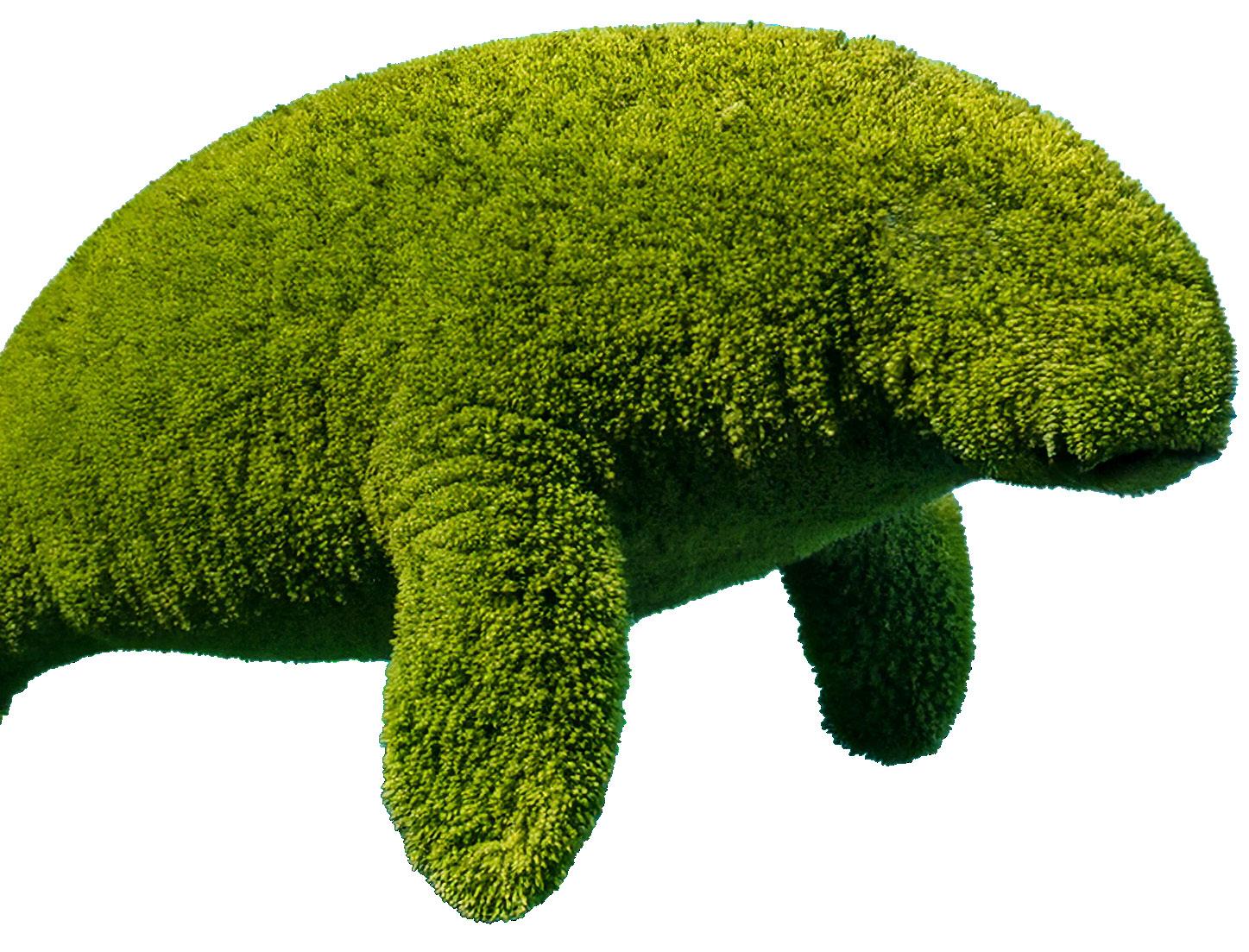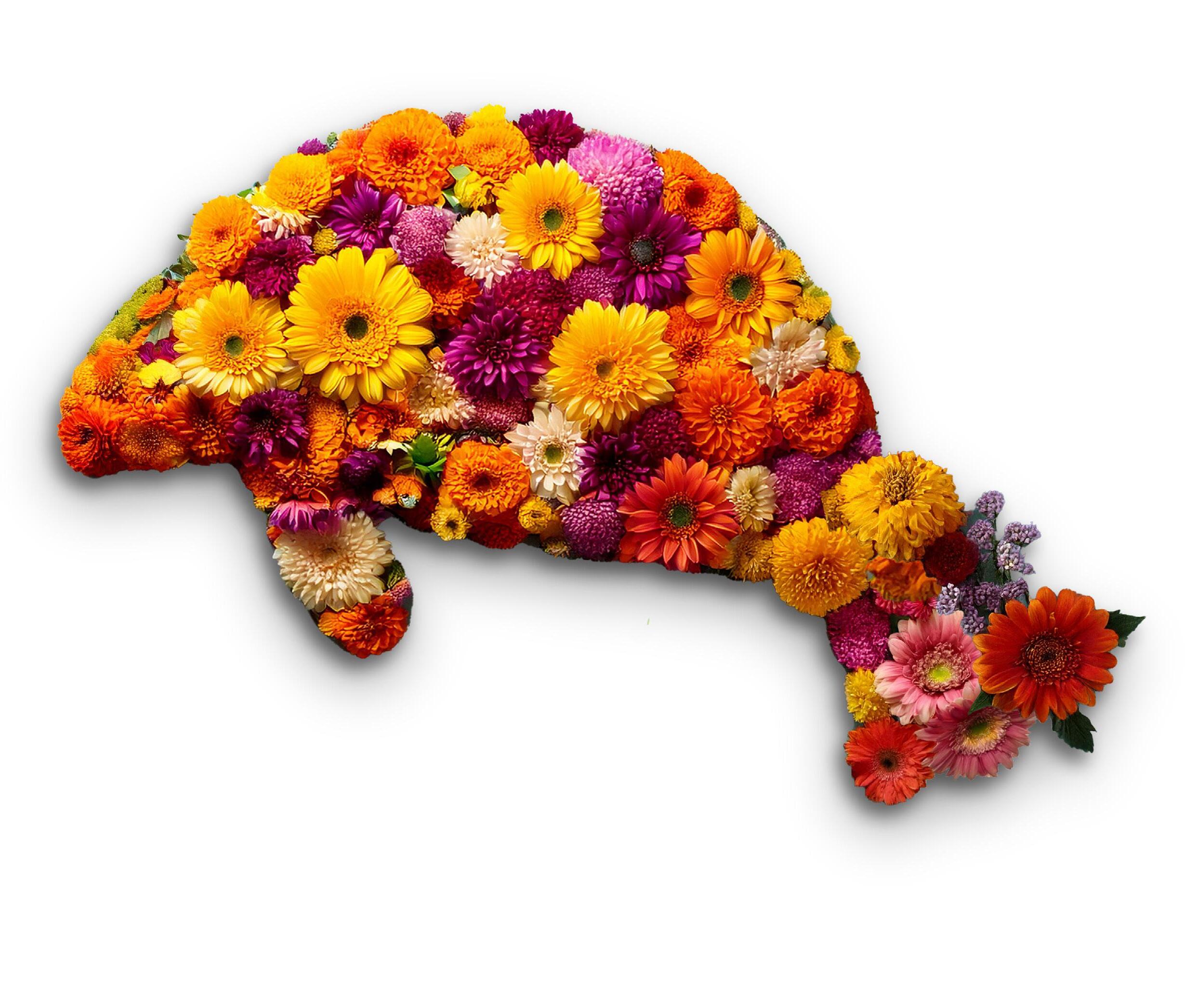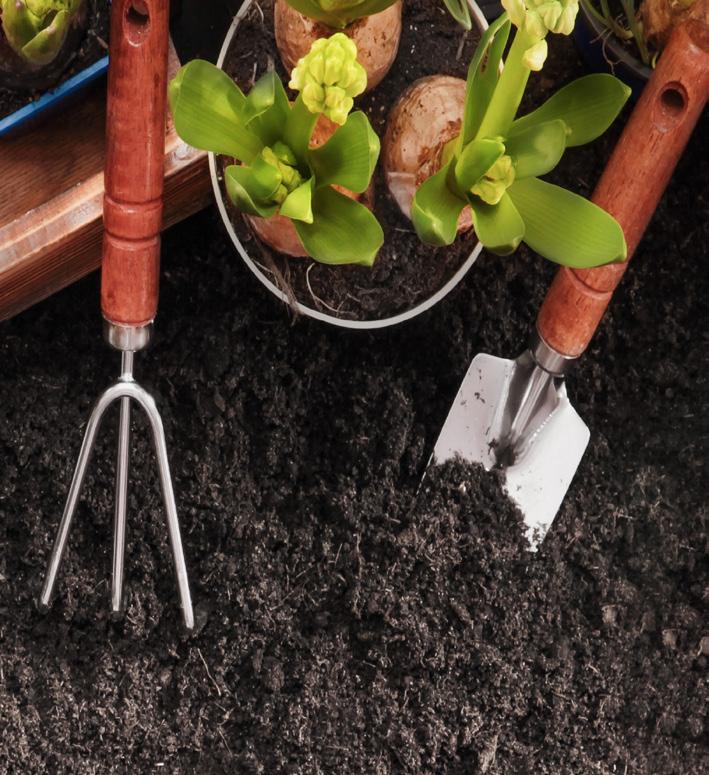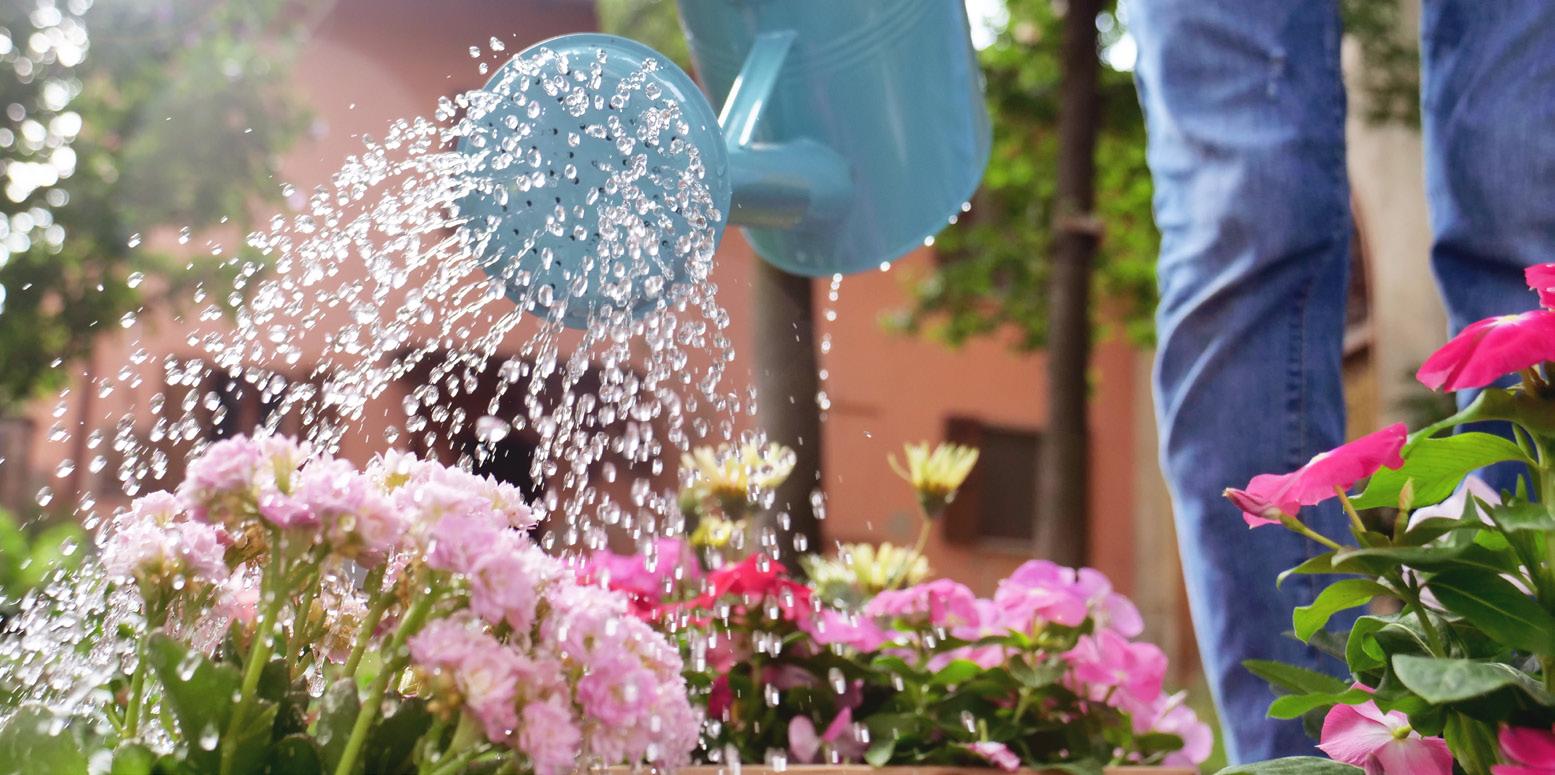
3 minute read
Caring For Manatees and Your Landscape
By Amber Yates Horticulture Technician II
Spring is near, and I am personally excited to start gardening and visit the springs to see some manatees. While these two activities might seem like opposites, I will actually be thinking about the manatees in my garden.
If fertilizer helps the plants in your yard thrive, imagine its effect on aquatic plants. Excess nutrients in water promote the growth of all plant life, including algae. One such algae, Karenia brevis, causes harmful algal blooms (HABs), commonly known as red tide. HABs release toxins that pollute the air and water, and in high concentrations, they can impact the nervous systems of fish and vertebrates, including manatees.
Florida manatees utilize almost every body of water. They travel through coastal waters to reach different estuaries, which lead them to freshwater sources in search of food and warmer waters. As herbivores, manatees feed exclusively on plants, such as seagrass. However, they face a major challenge—sharing these foraging grounds with Florida residents. One often-overlooked issue is how we maintain our landscapes. Even a garden miles from any body of water can impact these vital habitats for manatees. Runoff is the process by which pollutants travel from streets to sewers, into streams, and ultimately into larger bodies of water. Our landscapes contribute to this problem when fertilizers and pesticides wash away with the rain. While fertilizer itself isn’t inherently harmful, many plants need additional nutrients to grow. It is improper application and poor gardening practices that are the culprits of this issue.
Dense algae growth also blocks sunlight from reaching seagrass beds, preventing the plants from growing and degrading water quality. The surviving seagrass must work even harder to filter the water, much like how land plants filter our atmosphere. Unfortunately, this natural filtration process turns manatee food into a vessel for toxins. As seagrass absorbs pollutants like fertilizers and pesticides, it becomes increasingly toxic. When manatees consume enough of this contaminated grass, they can be poisoned by their own food source.

However, manatee habitats and food sources can still be saved. Simple gardening practices can make a significant difference. Consider adopting the following eco-friendly habits in your yard:
• Avoid fertilizer and pesticide use on lawns and landscapes. If necessary, do your research before applying anything to your gardens.
• Conserve water by irrigating only when necessary.
• Keep grass clippings out of streets, water bodies and swales.
• Learn about Florida-Friendly Landscaping for lower maintenance plants.

So, the next time you admire your garden remember the beautiful process that is nature. Everything is connected and works together. Every choice you make in your yard is a choice you make for all nature around you.











